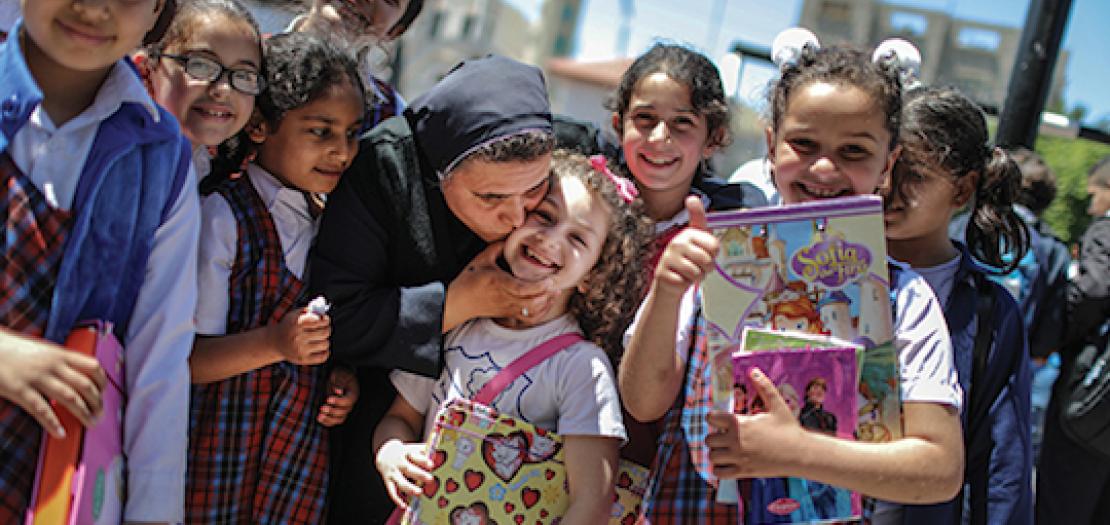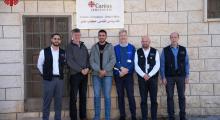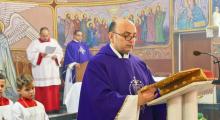Issued by the Catholic Center for Studies and Media - Jordan. Editor-in-chief Fr. Rif'at Bader - موقع أبونا abouna.org

“Devastation everywhere, everything is destroyed. In these days of truce, the Christians took the opportunity to go and see their homes: no one returned happy, because there wasn't one left. They are all reduced to rubble or in any case unusable." This is what Sister Nabila Saleh, a nun from the congregation of the Sisters of the Holy Rosary, tells AsiaNews , taking advantage of the pause in the bombing by Israeli fighters in recent days to have visited large parts of the Strip. “A tragedy everywhere – she says on the phone, despite the difficulties in communications and the frequent interruptions of the line – there is nothing left standing and the suffering is everywhere, in every street and in every family”.
The temporary pause in the war, extended at the last minute by Israel and Hamas for another 24 hours despite the fact that the radical wing of the government of the Jewish state (ministers Ben-Gvir and Smotrich) speaks of the fall of the executive in the event of failure to resume the conflict, it was used to visit parts of Gaza. “There is a little less tension - underlines the nun of Egyptian origins, who has been in the Strip for 13 years - but the signs of the bombings and the 58 days of war are clearly visible”. At least the break, he continues, "allowed us to sleep a little more, we managed to visit the few shops still open, those who could bought some winter clothes, which no one had, to protect themselves from the cold that is starting to get here feel".
The needs and requirements are enormous, explains Sister Nabila, especially "eating, clothing, gas for heating and to run the power generators". The nun is also principal of the school of the Sisters of the Rosary of Jerusalem, in the Tel al-Hawa area, the largest in the Strip with its 1250 students, the vast majority of whom are Muslims. "Inside - she says - we have a well but without electricity and electricity we are unable to draw water to wash ourselves, to satisfy the minimum needs for personal hygiene".
The "rubble" of the conflict that broke out on 7 October with the attack by Hamas on the heart of Israel and the massacre of civilians, which triggered the harsh response of the Israeli air force with incessant and widespread bombings in Gaza, are "in every street and square. There is a climate of great sadness and fear - says Sister Nabila - only partially alleviated by the pause. We try to think about the future, beyond the war, but here there are no longer houses, schools, there is no work and no prospects can be seen, especially for young people, children". “The Latin parish - he explains - has spent a lot of effort to provide help and the church has offered refuge and shelter to many [there are almost 700 inhabitants of Gaza welcomed by the Holy Family, ed.], but from north to south there is no safe place".
“To date we don't know what will happen - states the nun - but everyone remains afraid of war and of what could happen in the next few days. At every moment you feel the danger of dying. I have heard many stories of mothers looking for their children after the bombings, they are terrible stories. Like that of the elderly Christian [shot by an Israeli sniper] whose body was recovered by some young people in a moment of truce, then they buried what was left of her, praying. They are also difficult stories to tell, and there are many like this."
And then the victims among the youngest, the children, even among those who attended the Christian school: "Many died" confirms the nun, as in the case "of the father who pulled two from the rubble". In this context of suffering, death and desperation, the closeness of Pope Francis is "very important" as he calls the parish or the nuns almost every day to get information, pray and show the Church's solidarity with the Christian and non-Christian population of the Strip. “Those phone calls - says Sister Nabila - help us”.
Finally, with communication interrupted several times, the nun wants to launch an appeal: "We want peace, enough with the violence because the population has already suffered enough. We have experienced four wars and this is certainly the most terrible and bloodiest. We want peace - she concludes - she because with war there is no winner. We all hope and pray for the arrival of the medicines because there is also a tragedy taking place at a health level, that food, aid and that we can celebrate and celebrate a peaceful Christmas are guaranteed, especially for our children".







